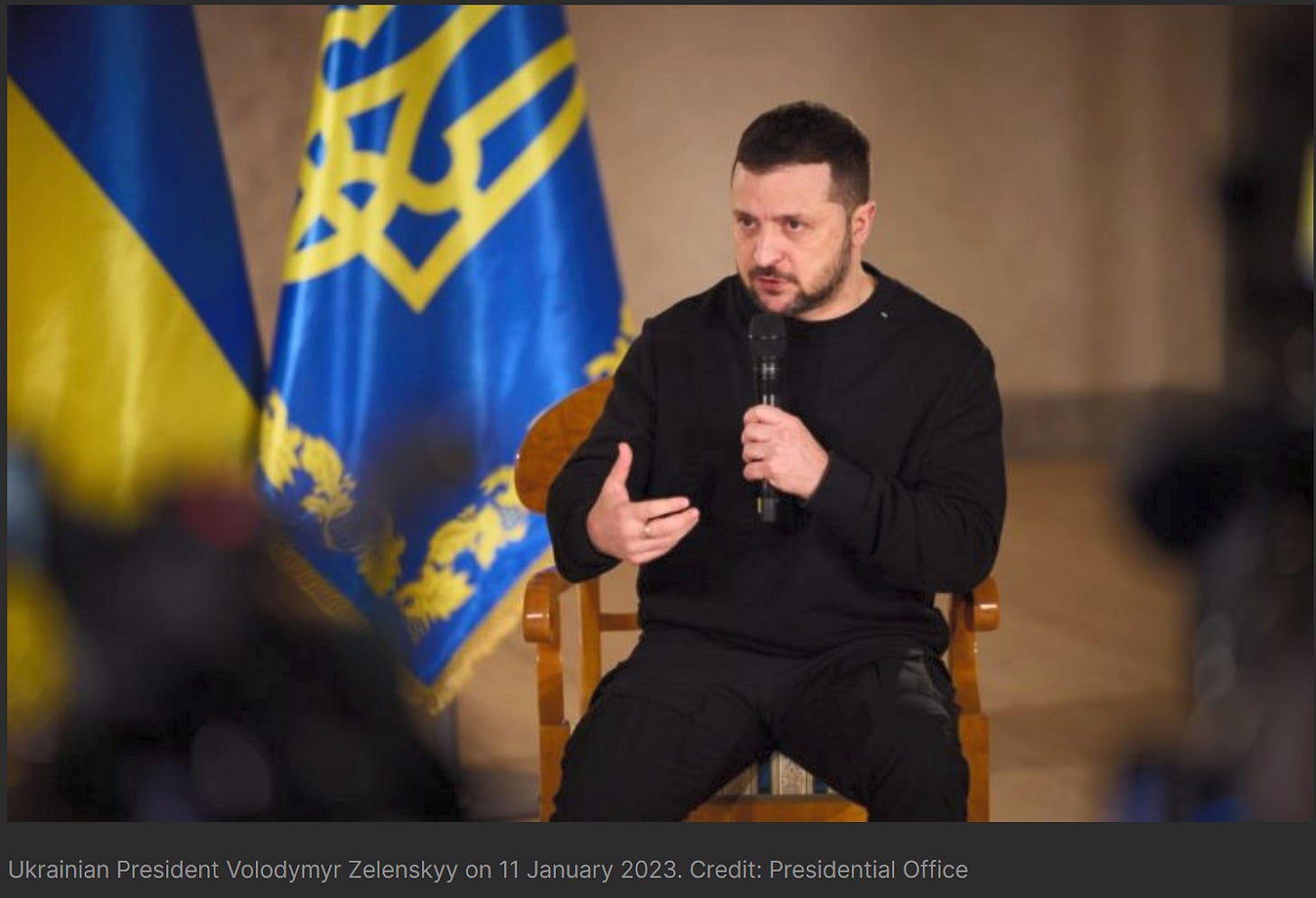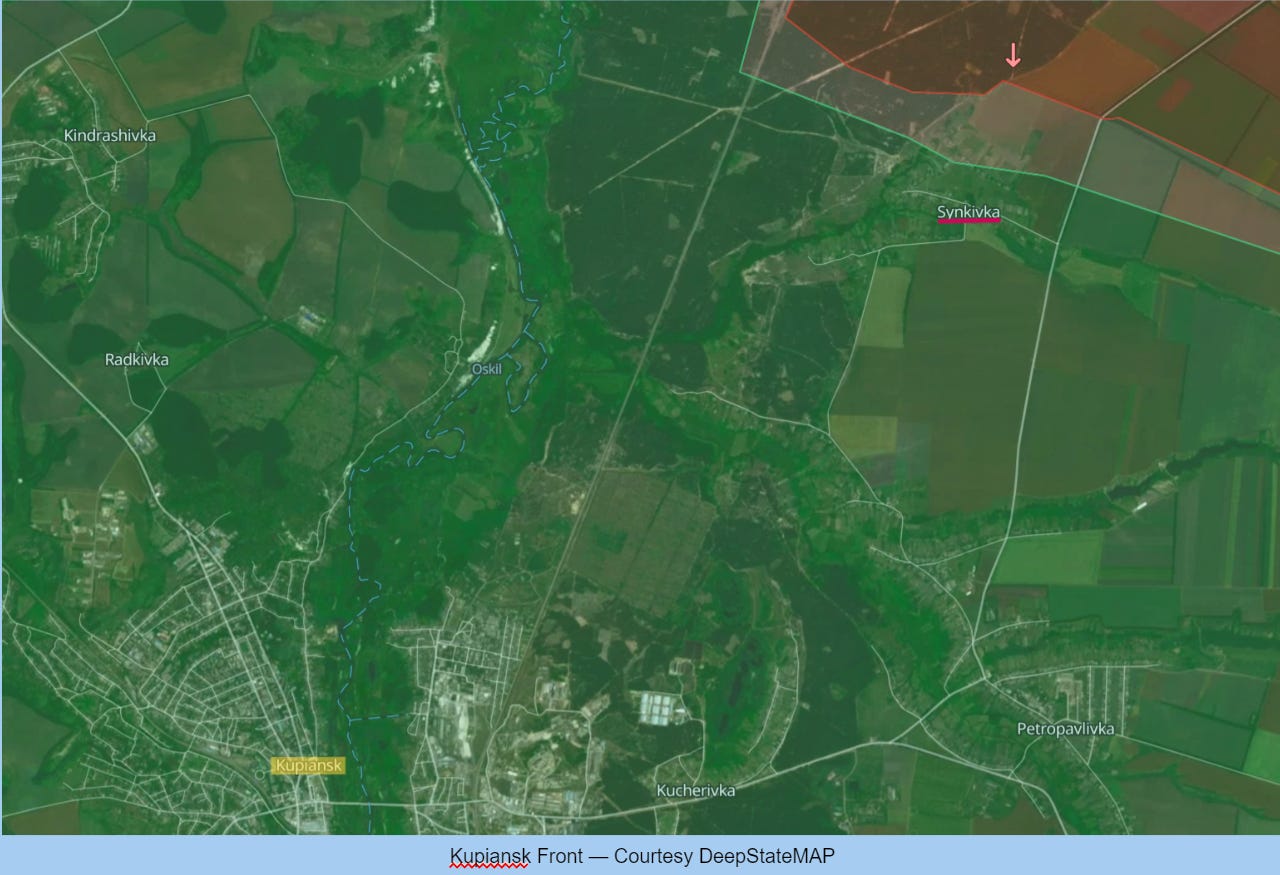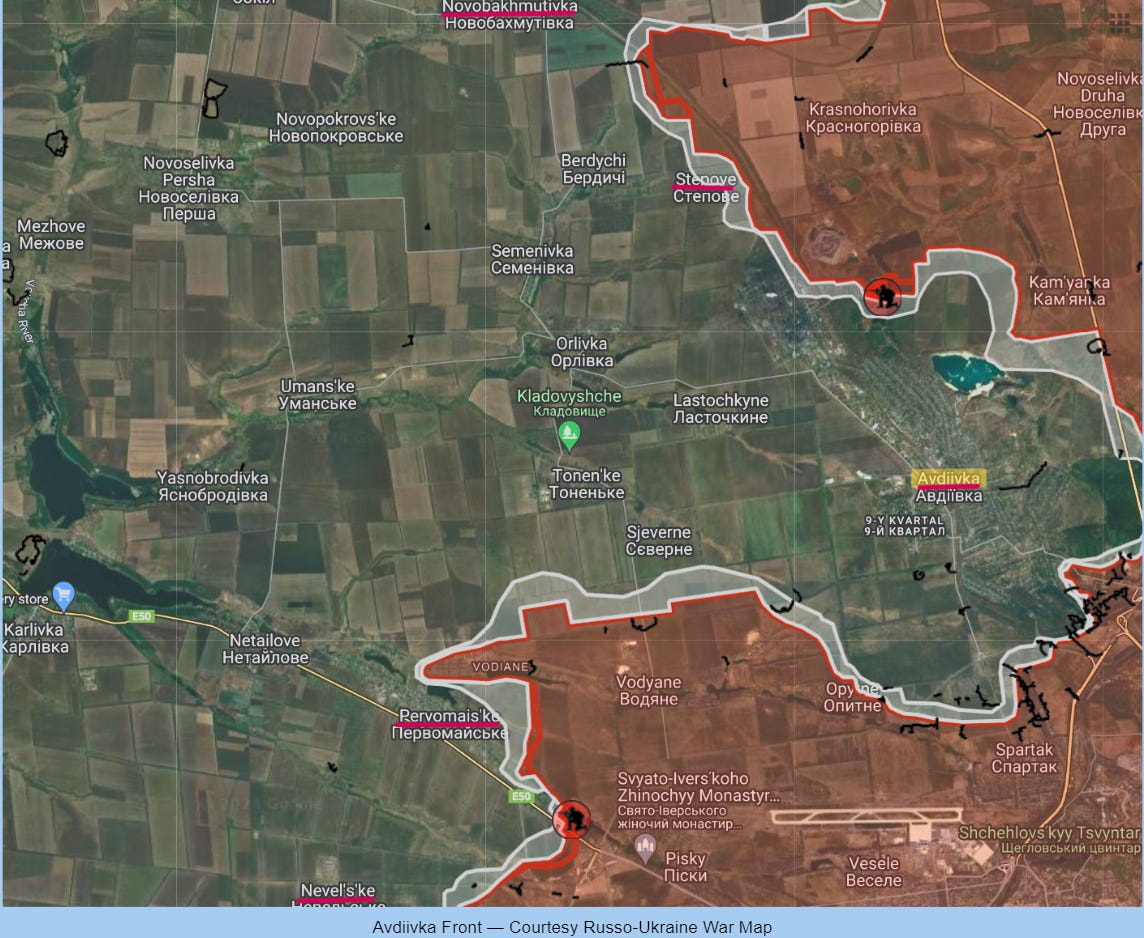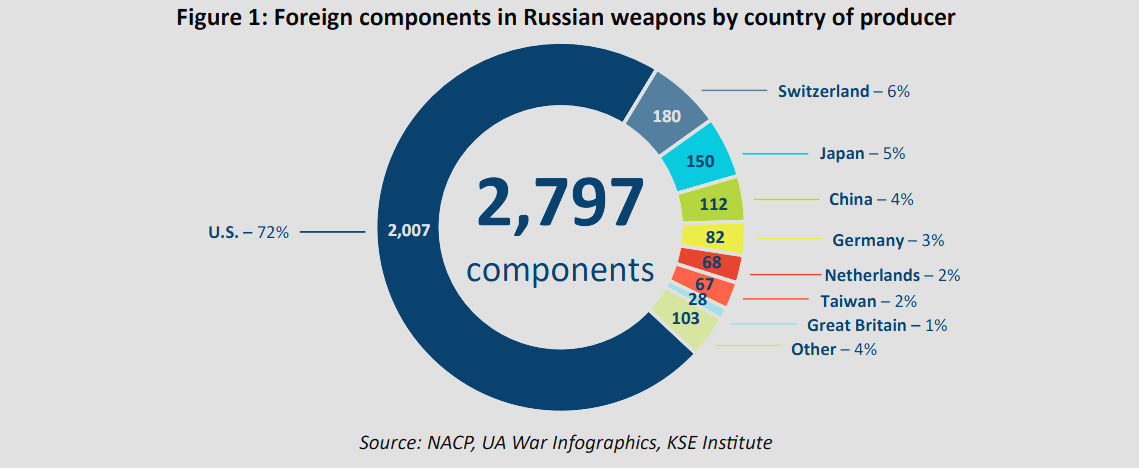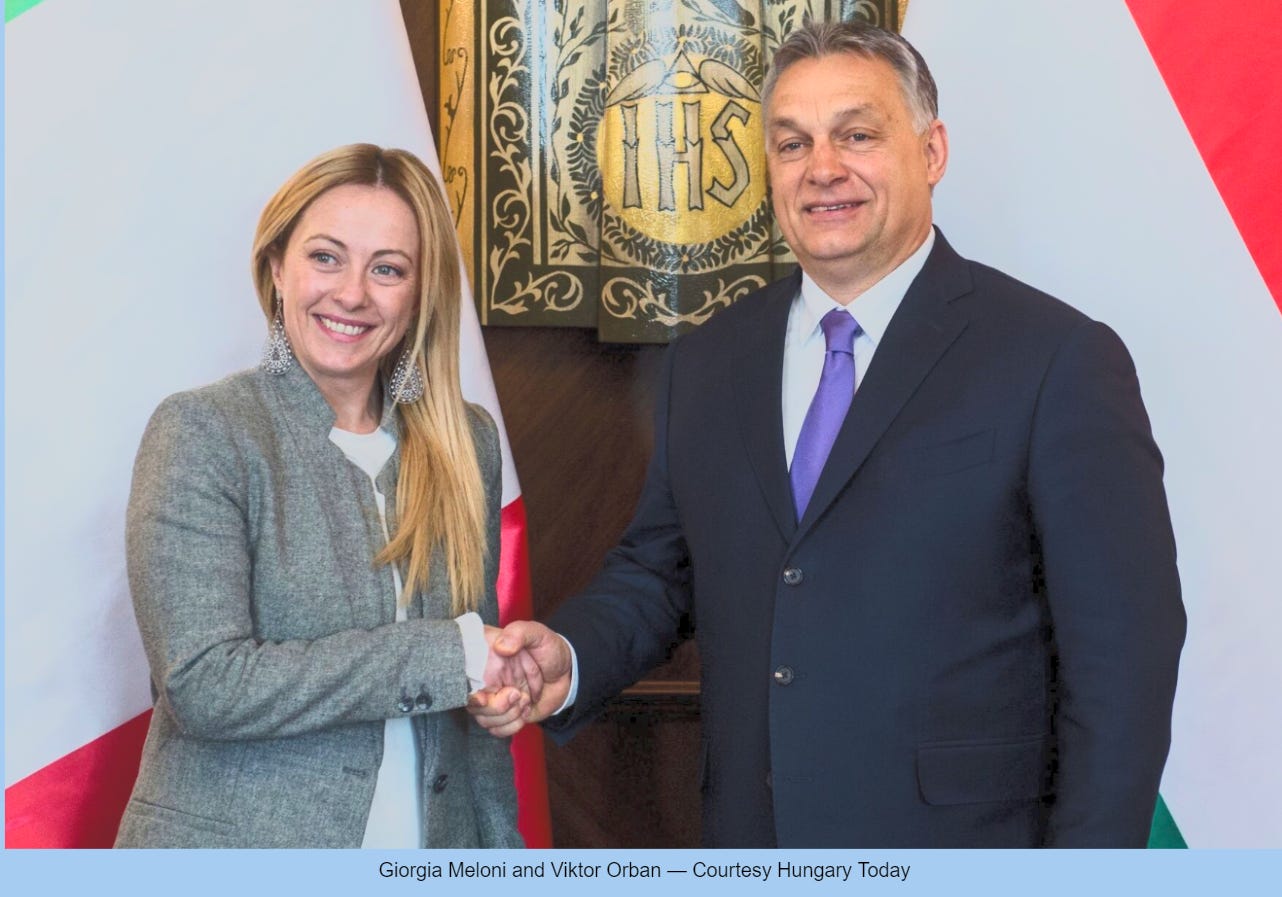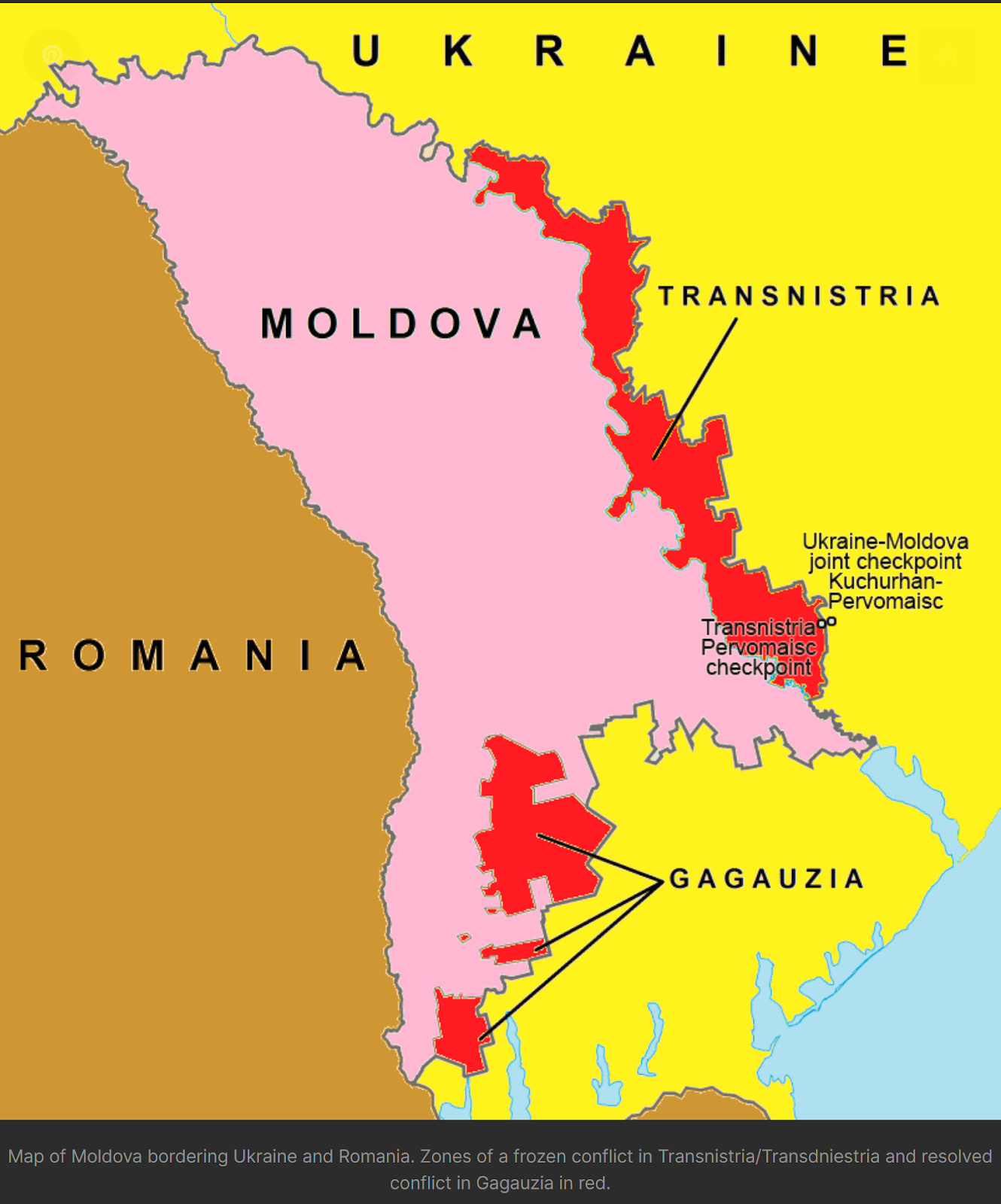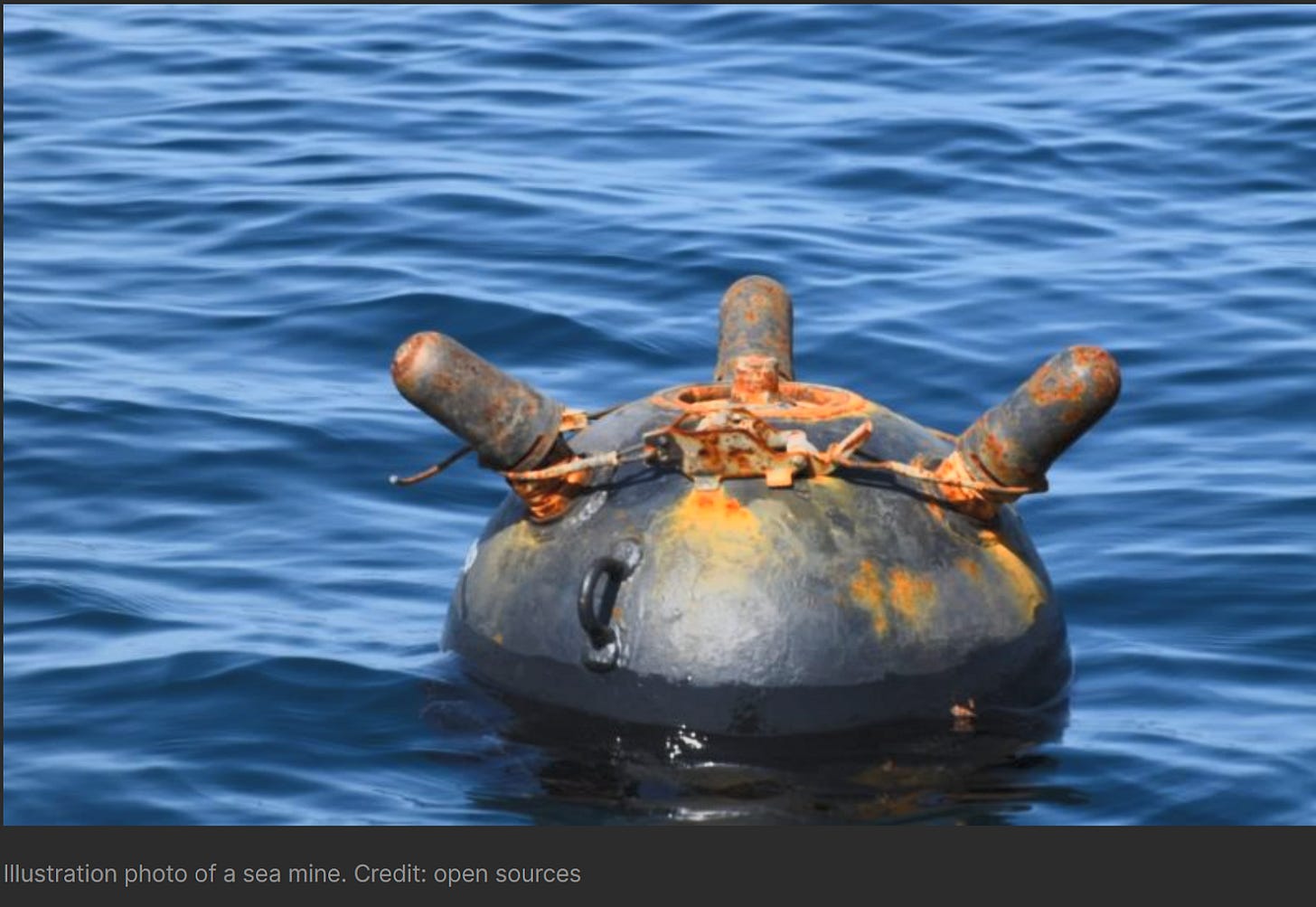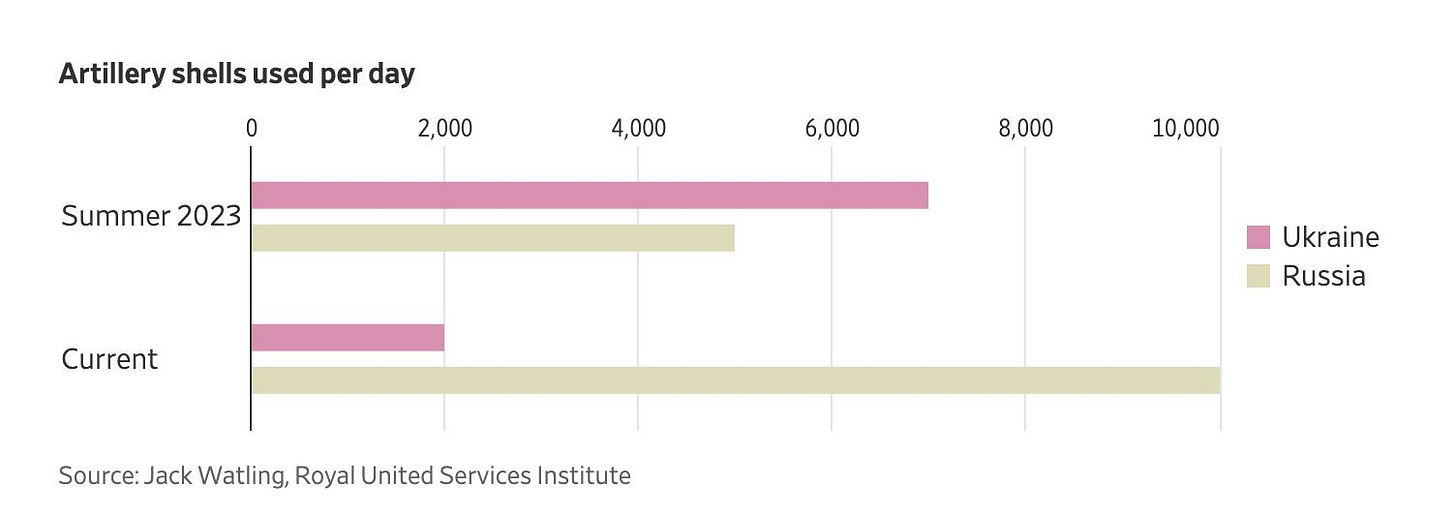Slava Ukraini! Since June 2023 I have provided a daily draft for the Ukraine War Brief Podcast collecting news from over 40 sources daily much of which ends up in the script. I will make this Draft available here for those who wish to keep up with events on a daily basis.
INSIDE UKRAINE
ALONG THE CONTACT LINE
GSAFU Morning Report
The General Staff of the Armed Forces of Ukraine in its situation update at 06:00 on Jan.12 stated that it was The 688th day of large-scale invasion of the Russian Federation against Ukraine.
During the past day, 64 combat engagements took place. Over the past 24 hours, the enemy carried out 3 air strikes and 16 MLRS strikes across the positions of our troops and settlements. As a result of the Russian terrorist attacks, unfortunately, there are dead and wounded among the civilian population.
Zelenskyy: Air control crucial for Ukraine’s ground offensive
During a press conference following his visit to Latvia on 11 January, Ukrainian President Volodymyr Zelenskyy underscored the importance of air control in Ukraine’s ongoing battle against Russian occupying forces. He stated that Ukraine had liberated 50% of the territories occupied by Russia almost two years ago but emphasized the need for air dominance to advance its defense forces further.
On 22 December 2023, Ukrainian forces downed three Russian Su-34 combat jets over southern Ukraine. Although Russia has resumed tactical air strikes in recent days, the frequency and intensity of these operations remain lower than before the shootdowns.
“The situation at the front is very complicated. We lack weapons. If the Russians did not control the air and we had enough anti-aircraft defense, enough systems, we would simply destroy their aviation. We’ve tried – it works. When you destroy them in the sky, you move forward. Ukraine doesn’t make wide steps forward because they control the sky… If we unblock the sky, we will go forward, if not – we will stand where we stand,”
— Volodymyr Zelenskyy, President of Ukraine
He highlighted that the advancement of Russian troops in Ukraine happens only because they are not afraid to kill civilians and destroy settlements before entering them.
Despite Russia’s narratives, they have not been able to occupy any big city in a year, the Ukrainian President emphasized.
The Khortytsia operational-strategic group is responsible for the Kup’yans’k, Lyman, and Bakhmut axes, in the northeastern part of Ukraine.
Kup’yans’k axis: Ukrainian defenders repelled 2 enemy attacks in the vicinity of Syn’kivka (Kharkiv oblast).
Lyman axis: the Ukrainian defenders repelled 6 attacks of the occupiers near Makiivka (Luhansk oblast) and east of Terny (Donetsk oblast).
Bakhmut axis: the Ukrainian soldiers repelled 1 attack near Klishchiivka (Donetsk oblast).
The Tavria operational-strategic group is responsible for the Avdiivka, Mar’inka, Shaktars’ke, and Zaporizhzhia axes, in the central-eastern and southeastern part of Ukraine.
Avdiivka axis: the Ukrainian defenders continue to hold back the enemy who keeps trying to encircle Avdiivka. AFU soldiers are standing their ground and inflicting major losses on the invaders. Ukrainian Defense Forces repelled 10x enemy attacks near Novobakhmutivka, Stepove, Avdiivka, and 17x more attacks near Pervomais’ke and Nevel’s’ke (Donetsk oblast).
Mar’inka axis: the Ukrainian Defense Forces continue to hold back the occupiers in the vicinities of Heorhiivka, Mar’inka, and Novomykhailivka (Donetsk oblast). The Ukrainian troops repelled 13x attacks in that area.
Zaporizhzhia axis: Ukrainian Defense Forces repelled 3 attacks of the adversary west of Verbove, (Zaporizhzhia oblast).
The Odesa operational-strategic group is responsible for Kherson, Qırım, (also known as Crimea) and the Black Sea
Kherson axis: the Ukrainian defenders continue to expand the bridgehead. Despite significant losses, the enemy does not abandon its attempts to dislodge Ukrainian troops from their positions. During the day of Jan. 11, the adversary made 3 unsuccessful assaults on the positions of the Ukrainian Defense Forces.
TEMPORARILY OCCUPIED TERRITORIES
Nothing to report.
THE HOME FRONT
Russian missiles strike Kharkiv hotel, injuring 11, including Turkish journalists
At around 22:30 on Jan. 10, Russian forces hit the Kyiv district in central Kharkiv with missiles, Oblast Chief Oleg Syniehubov reported. Kharkiv Mayor Ihor Terekhov said two missiles hit a hotel downtown, where 30 civilians were staying. The missile strike injured 11 of them. Initial reports suggest the missiles were the ballistic S-300s.
Russia carries out ballistic missile strikes on Kharkiv City almost every day, targeting it from nearby Belgorod Olbast. With the missile approach time counting in a few minutes and the high velocity of the air targets, Ukrainian air defenses protecting the city cannot repel such attacks.
Syniehubov added that as of 1 a.m., the injury toll was at eleven, with 4 of the victims being men aged 31 to 38, and seven women aged 23 to 71. Earlier he noted that the missiles didn’t hit the hotel but exploded near it.
“Nine victims were taken to medical institutions. Currently, one of the victims, a 35-year-old man, is in serious condition, eight patients are in moderate and light condition, and two were treated on the spot,” Syniehobov reported.
Terekhov added that “Turkish journalists were among the injured.”
THE RUSSIAN WORLD
Russia still imports one-third of essential war tech from Western companies
A data analysis conducted by the Kyiv School of Economics has revealed that Russia obtained at least one-third of its essential foreign battlefield components from companies headquartered in the United States and allied nations in 2022, Financial Times reports.
Russia obtained at least one-third of its foreign-sourced critical battlefield components from companies based in the US and its allies last year — in large part because of outsourced production facilities in states that apply weaker export controls.
These goods — worth a total of $7.3bn — were mainly manufactured in countries that are not part of the US-led export-control coalition, according to an analysis by the Kyiv School of Economics. The largest share of these goods — worth around $1.9bn — were produced in China.
The US is the only country to insist that goods made in a third country may potentially be covered by domestic controls. The “foreign-direct product regulations” (FDPR) are extraterritorial and can cover goods made in third countries if content, software or technology originating in the US has been involved in their production.
NEWS WORLDWIDE
NATO pledges ‘billions’ in 2024 arms for Ukraine
According to a statement released after a meeting of the NATO-Ukraine Council held in Brussels, NATO countries will continue providing Kyiv with military, economic, and humanitarian aid in 2024.
The statement comes amid debates within Western countries regarding further support for Ukraine as it confronts Russian aggression.
Today, Allies made clear that they will continue to provide Ukraine with major military, economic, and humanitarian assistance, and many Allies outlined plans to provide billions of euros of further capabilities in 2024,” the statement reads.
The meeting was held at the ambassadorial level, convened at Kyiv’s request following the shelling of Ukraine during the New Year holidays. NATO Secretary General Jens Stoltenberg chaired the session. NATO ambassadors and invitee Sweden were briefed via videoconference by Lieutenant General Mykola Oleshchuk, Commander of the Ukrainian Air Force, and Deputy Interior Minister Oleksii Serhieiev.
The head of Ukraine’s mission to NATO, Natalia Galibarenko, stated all NATO member countries have confirmed without exception that they will continue supporting Kyiv.
Meloni Pushes Hungary’s Orban to Unlock Ukraine Aid in Back-Channel Talks
Italian Prime Minister Giorgia Meloni is seeking to convince Hungarian Premier Viktor Orban to lift his opposition to the European Union’s support for Ukraine and to improve relations with President Volodymyr Zelenskyy, Bloomberg reports.
Movement on those issues could pave the way for Orban’s Fidesz party to join the far-right European Conservatives and Reformists political party alongside Meloni’s Brothers of Italy, Poland’s right-wing Law and Justice and the nationalist Sweden Democrats, among others, according to people familiar with the discussions.
This would boost the pan-European ECR party ahead of the European elections this summer in which far-right groups are expected to make gains.
The talks underscore Meloni’s foreign policy ambitions as she seeks to carve out a role in the EU as a power broker. Failure to agree on financing for Ukraine would be a blow to Zelenksyy’s war effort and would call into question the bloc’s ability to act in support of its fundamental interests.
Meloni is also pushing Orban to shift his approach on Ukraine’s EU membership aspirations and to reset relations with Kyiv as conditions for joining the ECR, said the people, who spoke on the condition of anonymity. Discussions have taken place at various levels and no decision has been taken.
North Korea uses Ukraine “as test site for nuclear-capable missiles,” South Korea claims at UN SC meeting
On Jan. 10 the United States called an emergency meeting of the UN Security Council to discuss North Korea supplying missiles to Russia used in attacks against Ukraine.
During the meeting South Korea‘s representative to the UN noted that North Korea provided Russia with short-range missiles that Russia used to fire into Ukraine in December and January. He strongly condemned it, claiming that “by exporting missiles to Russia, North Korea is using Ukraine as a test site of its nuclear-capable missiles.”
Earlier, the White House, citing newly declassified intelligence, announced that North Korea supplied Russia with ballistic missiles and launchers, some of which have been used in the ongoing war in Ukraine.
The Kharkiv Regional Prosecutor’s Office said on 7 January that the examination of the tail part of a missile recently launched by Russia against Kharkiv City suggests North Korea could have supplied it, but the initial report needs to be additionally verified.
The Security Council meeting was later adjourned.
The Kremlin may be planning a false flag operation in Transnistria
The Institute for the Study of War (ISW) in its Jan. 10 Russian Offensive Campaign Assessment stated that the Kremlin may be instructing actors in the Russian-backed breakaway republic of Transnistria to set information conditions for a possible false-flag operation in Transnistria as part of wider Kremlin efforts to destabilize Moldova.
The Transnistrian Ministry of State Security (MGB), considered a Russian FSB extension, released a statement on 10 January about an “incident” on 7 January involving two Transnistrians allegedly transferred to Ukraine, which is still being clarified.
The Kremlin might orchestrate false flag operations in Transnistria, potentially to justify intervention under the pretext of protecting ethnic Russians and Russian speakers. On 10 January, the Russian Ministry of Foreign Affairs (MFA) announced it summoned the Moldovan Ambassador to Russia, protesting Moldova’s “unfriendly actions.” These actions include alleged politically motivated persecution of Russian and Russian-language media, as well as reported discrimination against Russian citizens entering Moldova.
The Russian MFA warned of retaliatory measures against Moldova for perceived hostilities, including assisting NATO in training Ukrainian forces, which it views as direct involvement in the Ukraine conflict. This stance reflects the Kremlin’s ongoing narrative of defending ethnic Russians and Russian-speakers abroad under the “Russian World” (Russkiy Mir) doctrine.
Türkiye, Romania, and Bulgaria sign agreement for joint Black Sea mine clearance
On Jan. 11 Türkiye, Bulgaria and Romania on Thursday signed an agreement to jointly tackle drifting sea mines that have threatened Black Sea shipping since the start of the Ukraine war. AP reported.
Turkish Defense Minister Yasar Guler said the agreement establishes a Mine Countermeasures Task Group among the three NATO allies to deal with the mines.
“We jointly decided to sign a protocol between three countries in order to fight more effectively against the mine danger in the Black Sea by improving our existing close cooperation and coordination,” Guler said at a news conference in Istanbul with Romanian Defense Minister Angel Tilvar and Bulgarian Deputy Defense Minister Atanas Zapryanov.
Zapryanov said mines pose a “danger to ports, communication networks and key water infrastructure. It is in our interest and NATO’s interest to develop countermeasures against this danger.”
UN plans to provide Ukraine with $3.1 bn in humanitarian aid this year
United Nations agencies are set to request $3.1 billion in funding to provide humanitarian aid to Ukraine this year, as Russia’s ongoing war against the country continues to drive significant levels of need.
According to the UN, more than 14.6 million Ukrainians, 40% of Ukraine’s population, will require humanitarian assistance in 2024.
Edem Wosornu, the director of the Operations and Advocacy Division for the United Nations Office for the Coordination of Humanitarian Affairs (OCHA), announced this during a session with the UN Security Council in New York.
“As the war in Ukraine continues unabated, driving high levels of humanitarian need, financial support must be sustained,” Wosornu said.
According to the UN agency, the war has forced approximately 6.3 million Ukrainians to flee to neighboring countries, while four million people, including nearly one million children, remain internally displaced within Ukraine.
US aid to Ukraine suspended while Russian strikes only intensify
The United States has suspended aid to Ukraine pending Congressional approval of new funding, US National Security Adviser John Kirby said on 11 January at a briefing in the White House.
“The assistance we are providing to Ukraine has now stopped. However, the attacks the Russian military is carrying out are only increasing, using North Korean ballistic missiles to do their ‘dirty’ work,” Kirby said.
The US provided the last military aid package “that they had enough money for” on 27 December, according to Kirby. This refers to the $250 million in security assistance, which included air defense capabilities, artillery, antitank weapons, and other equipment.
The US Congress has not agreed on a military aid bill for Ukraine since the fall of 2023. President Joe Biden has proposed a national security bill worth more than $100 billion, including $61 billion to help Ukraine. Republicans didn’t approve the document as they demanded border and migration measures on the US-Mexico border in the bill.
MILITARY & TECH
Ukraine tripled arms making in 2023, eyes further growth this year
Ukraine tripled its production of weapons, military equipment, and artillery shells last year compared to 2022, while mine output surged 42 times, according to lawmaker Oleksandr Zavitnevych in an interview. This year, the state aims to scale up and diversify its defense industry output.
The Ukrainian defense sector’s goal now is to satisfy frontline needs with domestically or jointly produced armaments as quickly as possible.
“We are systematically pursuing two directions. The first is launching new defense industry product ranges, most notably drones and artillery shells. The second is reviving defense capabilities that Ukraine had in the past – tank, missile, aircraft and shipbuilding,” he outlined.
“We started developing 155mm NATO-caliber shells, with mass production planned in 2024, but conditional on steady supplies of explosive materials – gunpowder – from NATO nations. The private-to-state company ratio is 4 to 5, with private sector output approaching state levels,” the lawmaker commented.
Responding to reduced military aid for Ukraine, Zavitnevych noted this stems from depleted NATO stockpiles and slow ramp-up of production.
“Unfortunately, one reason is that NATO defense industries were unprepared for such a prolonged, intense conflict with high ammunition expenditure and military hardware needs to maintain parity with Russia’s decades-long war buildup,” he said.
Reserves at Western depots have largely been used up and require investment to replenish, Zavitnevych added. “Let’s not forget much of the weaponry supplied to Ukraine is hi-tech and takes months, not days, to manufacture.”
He explained the other factor relates to Western market economies. “Unlike authoritarian regimes that can manually change contracts and production, the West operates on free market principles like contracts, liability and penalties. To make one item, another’s output must stop, requiring compensation.”
Russia hits 2 million large-caliber munitions yearly; 500k shortfall covered by North Korea
Russia has reached production of 2 million large-caliber shells annually but still depends on imports to cover a deficit of 500,000 rounds, with North Korea emerging as the main supplier, a top Ukrainian military intelligence official said.
“Russia fulfilled its 2023 defense order and achieved capacity for 2 million 122mm and 152mm artillery munitions per year, our assessment is that Russia will still face a 500,000 large-caliber ammunition deficit annually and will have to cover it from external sources,” said Major General Vadym Skibitskyi, deputy head of Ukraine’s Defense Intelligence stated recently
That’s it for today’s Draft folks if you would like to keep up with events in Ukraine daily please consider subscribing, its free!
Feel free to share this update with your friends. Heroyam Slava!






